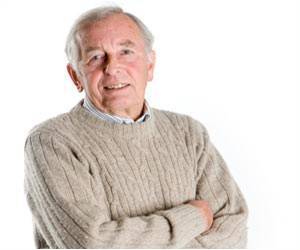Highlights:
- Early stage of dementia can be managed without drugs
- Both psychosis and agitation should be managed by behavioral and psychology strategy without the use of drugs
The panel of experts, who have both clinical and research expertise, provided more specific guidance on the management of behavioral and psychological symptoms like psychosis and agitation in people with Alzheimer's disease. They brought together all the latest evidence on how best to treat the symptoms and to get the best treatment for dementia that affects 40 million people worldwide.
Psychosis and agitation are common in dementia and have a significant impact on individuals, families, and carers.
How Clinicians should prioritize available treatments in order of the quality of evidence.
Agitation or AggressivenessThe first four highly ranked treatments for agitation in people with dementia were all non-pharmacological approaches.
The approaches included assessment and management of underlying causes, educating the people taking care of the patients, changing the environment to suit them, giving individual care and providing a tailored activity program, all ranked more highly than giving any of the medications. The antidepressant citalopram was the highest ranked pharmacological treatment at number six!
At number 7, was the currently used atypical antipsychotic drugs risperidone which was the only drug in the category to have been recommended.
Helen C. Kales MD, Director of the Program for Positive Aging at the University of Michigan and Research Investigator at the VA Center for Clinical Management Research noted: "This research advocates a significant shift from current practice, recommending that non-pharmacological treatments are a first-line approach for agitation in dementia. Aside from risperidone at number 7 in the list, none of the other atypical antipsychotic drugs were recommended. This is a very welcome change, given the known harms associated with these treatments."
Psychosis
The first approach advocated by the panel for the treatment of psychosis in people with dementia was a thorough assessment and management of underlying causes. The symptoms included in the evaluation were hallucinations and delusions.
The second recommendation was for the atypical antipsychotic risperidone which was the only pharmacological treatment with any supporting evidence that worked.
This indicates that there is a definite loophole in treating psychosis in people with dementia, which is a distressing and disabling symptom, an area that clearly needs further research.
Clive Ballard, Professor of Age-Related Diseases at the University of Exeter Medical School, said: "Symptoms such as psychosis and agitation can be particularly distressing and challenging for people with dementia, their carers and their families. Many commonly prescribed medications can cause harm, in some cases significantly increasing risk of stroke or death. We now know that non-drug approaches are the best starting points and can prove effective. This research provides more specific and targeted guidance to support clinicians to give the best possible treatment options."
Non-pharmacological Strategies
Management of dementia through non-drug approaches includeBehavioral strategies like making the patients perform routine tasks, providing one-step instructions, and giving them positive reinforcement
Stimulation-oriented approaches like providing light, music, sensory and aroma therapy
Emotion-oriented strategies like supportive psychotherapy, and sharing video and audio recordings of times spent with the family
Cognitive-oriented strategies like reality orientation and cognitive retraining
Non-pharmacological interventions in treating agitation and / or aggression in dementia may be patient-focused like exposing the patients to sensory based interventions and structured activities. It could also be caregiver-focused and manage the patients through the people taking care of them and the environment.
DICE - Describe, Investigate, Create and Evaluate
DICE is a therapy-based approach used to help caregivers manage the behavioral and psychological symptoms of dementia (BPSD). Caregivers experience significant difficulties in managing BPSD like aggression, anxiety, patients wandering away and refusing to co-operate. DICE guides and trains them and makes them understand the causes of BPSD and why they occur, helps them target the causes and use evidence-based behavioral and environmental strategies to manage the symptoms without prescribing drugs.References :
- Management of behavioral and psychological symptoms in people with Alzheimer's disease: an international Delphi consensus - (https://www.cambridge.org/core/journals/international-psychogeriatrics/article/management-of-behavioral-and-psychological-symptoms-in-people-with-alzheimers-disease-an-international-delphi-consensus/F6B4772CDF94FA65BE2D24EBEAD3BBD5)
- Non-pharmacological Approaches To DementiaIn the Long Term Care Setting - (http://www.rimed.org/medhealthri/2010-12/2010-12-369.pdf)
- Effective Health Care Program - (https://effectivehealthcare.ahrq.gov/topics/dementia-agitation-aggression/research-protocol)
Source-Medindia














